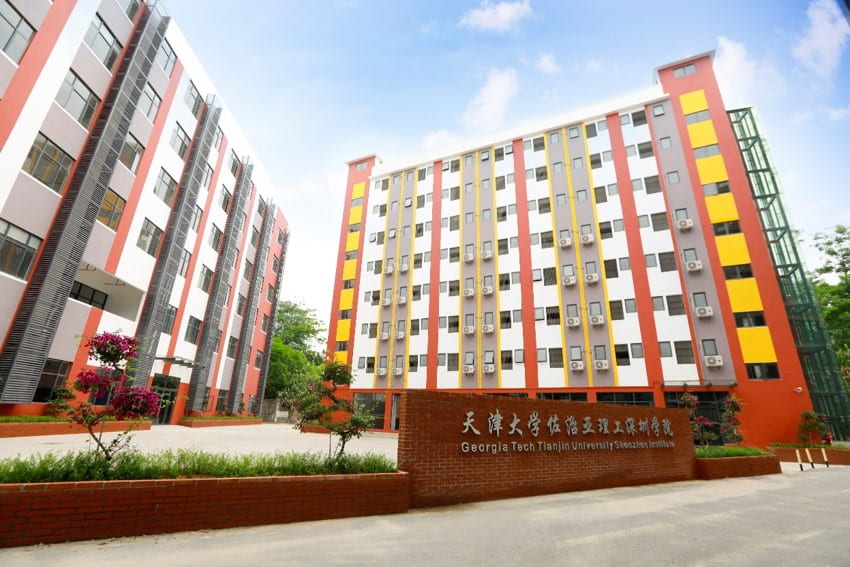Following a thorough investigation, Tech has decided to shut down its overseas campus, the Georgia Tech Shenzhen Institute (GTSI), after its ten years of existence. GTSI was located in Shenzhen, China, as an affiliate college of Tianjin University. However, the study abroad program in the summer will continue and current students in Shenzhen will be able to fulfill their degree requirements.
In May 2024, the House Select Committee on the Chinese Communist Party, the Senate Armed Services Committee, and the House Committee on Education and the Workforce launched an investigation into the relationship between Tech and Tianjin University.
In a letter to Tech President Ángel Cabrera, lawmakers asserted that Tech had used the resources of GTRI, a Department of Defence-funded institution, to conduct “sensitive research with military applications… with Tianjin University, a Chinese university with significant ties to the [Chinese Army].”
The committee also claimed in the letter that Tech received millions of dollars from China and the Shenzhen government for GTSI, which were not reported to the U.S. Department of Education.
In 2020, the United States Department of Commerce added Tianjin University to the Entity List. Entities in this list engage in “activities sanctioned by the State Department and activities contrary to U.S. national security and/or foreign policy interests.”
Tensions between the United States and China have been on the rise in recent months over a number of issues including espionage and commerce. In recent weeks, a former aide to two New York governors was arrested on charges of acting as an agent of the Chinese government. Notably in April of 2024, a report by the American Chamber of Commerce in China cited low confidence from American companies in China due to the jeopardized relationship between the two countries.
President Cabrera shared an update about the congressional investigation at his Institute Address just a day before the closure was announced.
“As of this day our partner has not rectified that situation. So congressional questions aside, I think we have done a good job providing information, complying with rules and all of that. We still need to ask ourselves the big question about whether or not we can continue to be in a partnership with a partner that unfortunately has made this list in our government,” Cabrera explained.
One specific piece of contentious research was the creation of the first functional semiconductor made from graphene. The committee alleged that the research “occurred through a joint laboratory between the Tianjin University International Research Center for Nanoparticles and Nanosystems (TICNN), of which a Georgia Tech professor served as director, and the PLA-linked company Bright Stone Innovation Technology Group…”
Steven McLaughlin, Provost and Executive Vice President for academic affairs at Tech, called these allegations “unfounded”.
“Supporting the Chinese government in any way, shape or form?… Absolutely, emphatically, no,” said McLaughlin to The Washington Post.
In response, Tech said that GTSI had neither received funding from GTRI nor been involved in sensitive research with military applications. Regarding the semiconductor research, Tech responded that a joint laboratory between TICNN and Tech had never existed. Furthermore, Professor Walter de Heer, who led the research, was the director of TICNN in his personal capacity.
“[The research] had nothing to do with the Georgia Tech Shenzhen Institute,” McLaughlin added.
However, Tech has still decided to sever the partnership due to the rising geopolitical tension between the US and China.
“There’s pending legislation in Congress that will forbid any US universities collaborating with entity list universities from receiving DOD funding again… and that in itself would have forced our hand,” McLaughlin said. “We’re a huge recipient of DOD funding and national security is a huge priority for us.”
Rep. Virginia Foxx (R-NC), the chair of the House Education and Workforce Committee, said, “The captain of the Titanic didn’t get a gold star for passing out life vests, and it shouldn’t have taken a congressional investigation to spur Georgia Tech to end its partnership with a blacklisted Chinese entity. Nonetheless, we’re glad that Georgia Tech has made the right call.”
GTSI launched in 2014 with a Master of Science (MS) degree program in Electrical and Computer Engineering (ECE). As of 2024, GTSI offered Master’s degrees in Analytics, Computer Science, ECE, Environmental Engineering and Industrial Design. Tech faculty taught in Shenzhen on rotational assignments, and students could also opt to spend the last one or two semesters in Atlanta or Metz.
Known as the ‘Silicon Valley of China,’ Shenzhen has the highest GDP per capita among large and medium-sized cities in mainland China. Multinational companies like Apple, Cisco Systems, Hitachi, IBM, Intel, Microsoft, Oracle and Siemens have their presence in the region. Tech expected to enroll 3,000 students by 2030.
Now, the plans to add PhD programs were canceled and the number of students was capped at 10% of the original goal.
In a Reddit post on r/gatech, a Chinese Master’s student lamented the recent closure of GTSI. The user, who was accepted into GTSI for Spring 2025, ‘doesn’t know what’s next.’ Tech has vowed to provide all Spring 2025 admitted students with a path to complete their degree requirements. Details are yet to be made public.
The China Summer Program, a study abroad program for undergraduate students during the summer, will still take place in 2025.
